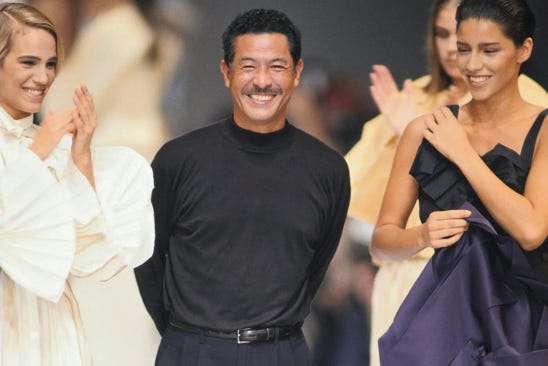Steve Jobs' iconic look was more than just fashion - it was a statement of his personal philosophy of efficiency and focus. He didn't follow trends. He found a uniform that worked and stuck to it - a black turtleneck, Levi's 501 jeans, and New Balance 992 sneakers. How did Steve get his style? It all started with his admiration for the Sony brand.
In the early '80s, Jobs visited a Sony factory in Japan. At the time, Sony employees wore uniform vests designed by Japanese designer Issey Miyake. Jobs liked the idea and asked Miyake to design a vest for engineers at Apple. "I came back with some samples and told everyone it would be great if we all wore these vests. Everybody hated the idea," Jobs later recalled.
So he decided to create a uniform for himself and asked Miyake to make him some of his classic black turtlenecks. Miyake sent him "hundreds" of them. The black turtleneck became a symbol of the fusion of functionality and aesthetics that reflected the core principles of Apple's product design.
Jobs was a practicing Zen Buddhist. He once said, "That was one of my mantras - focus and simplicity. His spiritual practice deeply influenced his minimalist approach to life, and his wardrobe choices were a daily reminder of that mantra. A consistent wardrobe allowed Jobs to reduce daily decisions and focus his energy on innovation and creativity at Apple.
His minimalist attire contrasted sharply with the complexity of the technology he developed, symbolizing his ability to distill complexity into products that were intuitive and easy to use.
What's also important what Jobs chose NOT to wear. He ditched the suit and tie. His attire reflected his ideology of challenging the status quo, whether through groundbreaking technology or breaking corporate dress codes.
A popular story says Jobs wrote to New Balance chairman Jim Davis asking for something sportier than his usual shoes and this may have influenced the 992's design. However, the timeline is a little fuzzy, and it's more likely he simply discovered and appreciated the 992 after its release for their comfort and craftsmanship.
Jeans, particularly Levi’s 501s, were deeply embedded in the counterculture of the 1960s and 70s. Jobs, having come of age in that era, connected with that spirit of rebellion and non-conformity. 501s are famously sturdy and comfortable – essentials for someone with a busy, no-frills lifestyle.
Steve Jobs' legacy is not just about the products Apple created; it's also about the way he presented himself to the world, a testament to living his values. Through his simple yet profound wardrobe, Steve Jobs showed that what we choose to wear can say a lot about our principles and priorities, and the change we want to make in the world.












